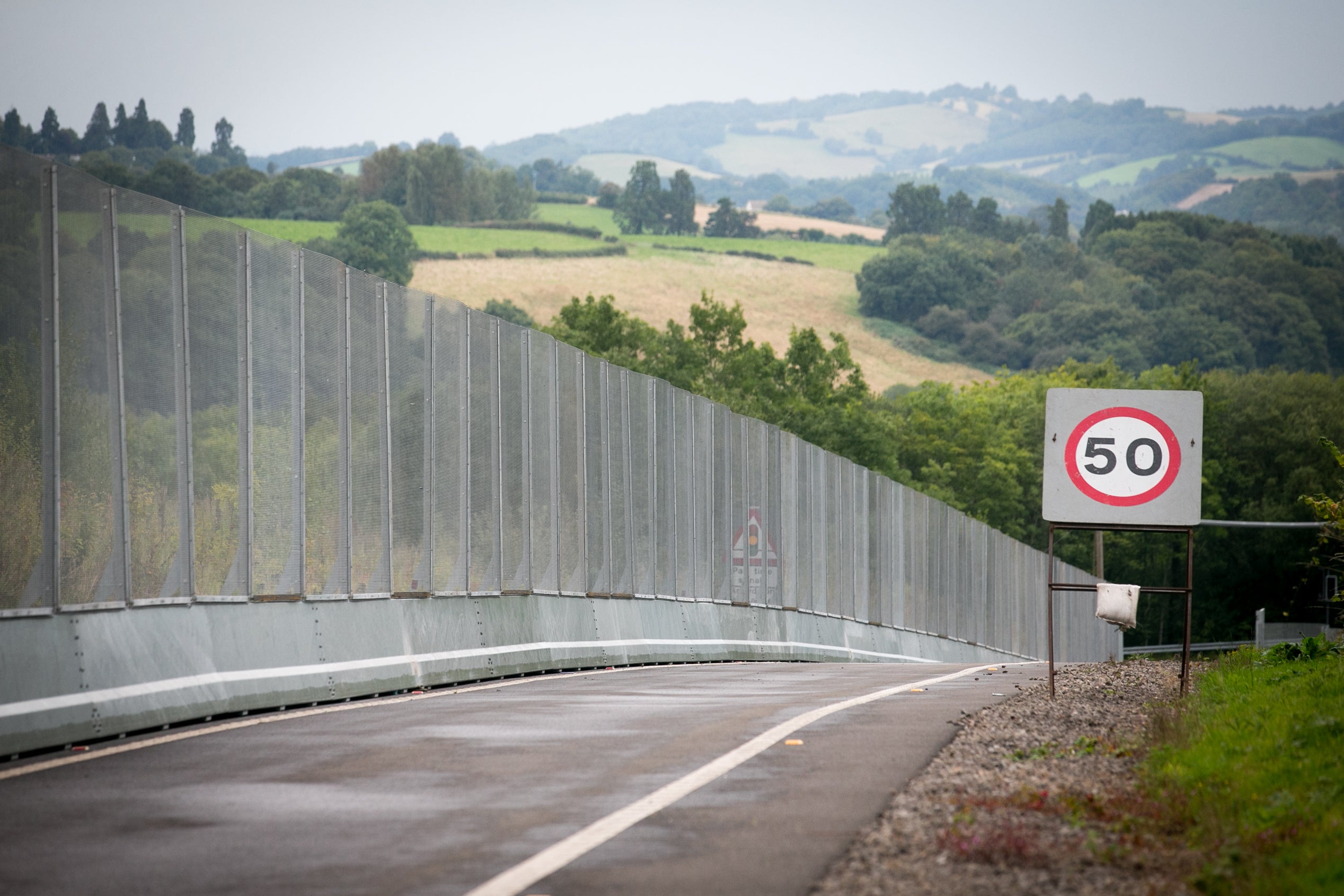Calais to be offered 9ft-high Nato Summit steel security fence to deter migrants
Immigrant Minister James Brokenshire said it could replace Calais' current "inadequate" fencing, over which a group of migrants climbed earlier this week in a bid to storm a P&O ferry

Ministers have approved giving Calais the 9ft-high "Ring of Steel" security fence that had been used at the Nato Summit, to help tackle the issue of migrants seeking to illegally board ferries and trucks bound for the UK.
The Home Office’s Immigration Minister, James Brokenshire, confirmed that tomorrow the UK is going to offer its "French partners" the fence as a replacement to the "inadequate fencing" the port currently has, which is "too easy for illegal immigrants to scale".
Writing in the Daily Telegraph, he said that authorities would also “like to establish secure parking areas where legitimate hauliers and travellers can wait without being hassled by would-be illegal immigrants.”
Two impenetrable steel walls were constructed to provide security at the convergence of world leaders at the two-day Nato Summit this week.
Inside the camps in Calais
Show all 20There was one around the Celtic Manor venue in Newport and another 12-mile-long one around Cardiff City Centre, which was disassembled at 4am this morning.
Dubbed the “Ring of Steel”, the imposing barrier was brought in to help mitigate the threat of a terrorist attack, with one member of the public mockingly renaming the Nato Summit “Stalag Luft 12”, reports Wales Online, in reference to the high security Nazi Germany prisoner-of-war camps.
Mr Brokenshire, who is also the Conservative MP for Old Bexley and Sidcup, said that the measure would be suitable for Calais in order to “send out a very clear message… [that] Britain is no soft touch when it comes to illegal immigration”.
His assertions follow criticism levelled at the UK by Calais Mayor Natacha Bouchart, who said that Britain had failed over the last decade to help the French deal with the problem of migrants trying to reach the English shore.
She added that migrants were attracted by the appearance of an employment and welfare “El Dorado” in the UK and that the citizens of Calais were tired of having to police the now-1,300 people from the Middle East and North Africa who were sleeping rough in the port town.
As many as 200 migrants in Calais attempted to storm a P&O ferry earlier this week after climbing over gates and running up the ramp in a bid to make it to the vessel. They were stopped after the ramp was lifted and a water hose turned on them.
It was described as a “worrying change in tactics” by French police.
“We have long been alive to the challenges posed in Calais, which has been the access point to Britain from the continent for centuries,” Mr Brokenshire added.
“Millions of pounds have already been invested in improving security and upgrading technology in Calais. We have increased staffing levels in the port and extended security patrols.
“Our security checking for freight includes up-to-the-minute heartbeat scanners and wave sensor technology to detect bodies in lorries, alongside the good old fashioned sniffer dogs.”
£3million had also been offered to the Port of Calais three months ago, he said, but that it is up to the French to “maintain security of their port and to maintain public order on their own soil”.
The construction of the Nato fence has been called a “sticking plaster, not a cure”, by a migrant expert at a leading think tank.
Tim Finch, the Director of Migration at the Institute for Public Policy Research, told The Independent that the problem of migrants in Calais is “essentially irresolvable”.
Britain has “no alternative but to keep them out”, he said, though some of them may die in the process, because “if we allow the group currently in Calais to come to the UK that would only encourage thousands more migrants to travel to Calais”.
He added: “It is incredibly difficult. It’s a terrible situation for the migrants themselves. They’re in a desperate situation.”
Mr Finch claimed that we need to have a long-running and European-wide discussion on the issue, with better patrolling of the Mediterranean and increased co-operation with transit countries, but that even if all these schemes and measures are in place “we’d still have the problem”.
He said that the fence “might be hard to scale but people will just try another way”.
Yesterday, former Home Secretary Michael Howard said that France should "get its act together" when it comes to Calais.
In July, it was reported that the UK spent £400,000 towards new fencing at Calais, which went on 13ft-high barriers with night vision cameras and razor wires because it was Britain's "turn to pay", according to the Dover Express.
Subscribe to Independent Premium to bookmark this article
Want to bookmark your favourite articles and stories to read or reference later? Start your Independent Premium subscription today.

Join our commenting forum
Join thought-provoking conversations, follow other Independent readers and see their replies